The Office: Burnout and finding meaning in a meaningless job
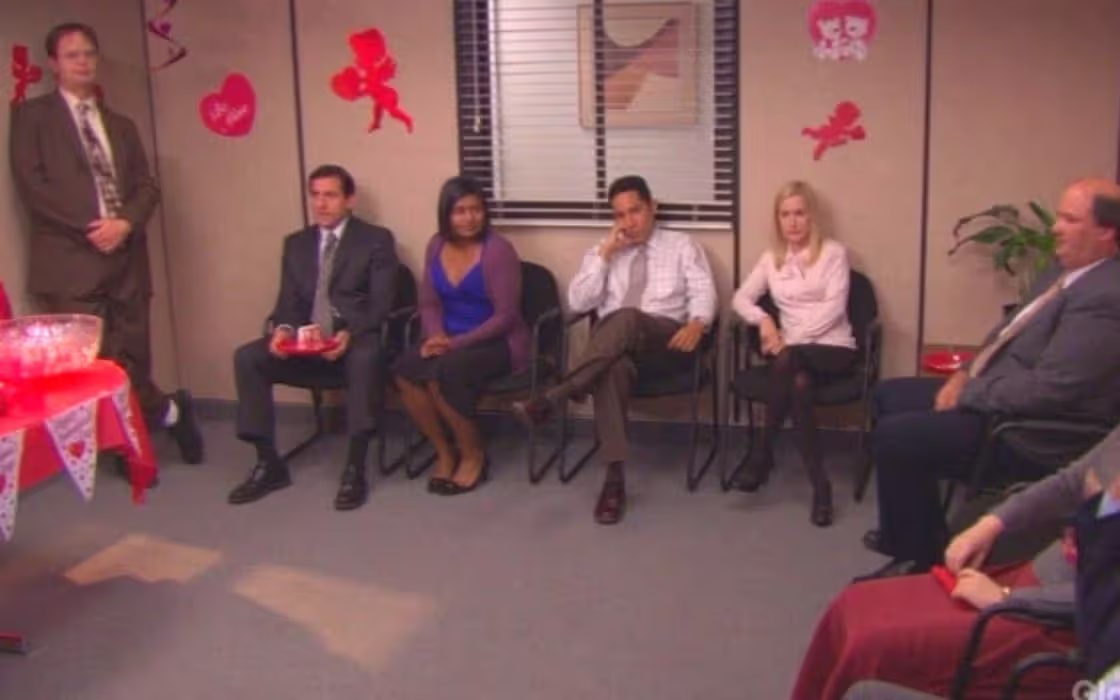
The Office (especially the American version, but also the British original starring Ricky Gervais) is much more than just an office comedy: it’s a subtle, but not always, critique of corporate life.
The absurdity of hierarchical structures
Michael Scott is an incompetent manager in a position of power. He is the epitome of a manager who believes he is inspiring, yet is out of touch with reality. The series highlights the idea that responsibility does not necessarily equate to deserving it — a frequent criticism of the corporate world. It depicts an inefficient and occasionally absurd hierarchy, where authority is more closely linked to seniority or internal politics than competence.
Banality and everyday boredom
The episodes revolve around the working day. We often see the characters looking bored, taking coffee break after coffee break and lingering after lunch, while indulging in the most absurd distractions. The characters do everything except work.
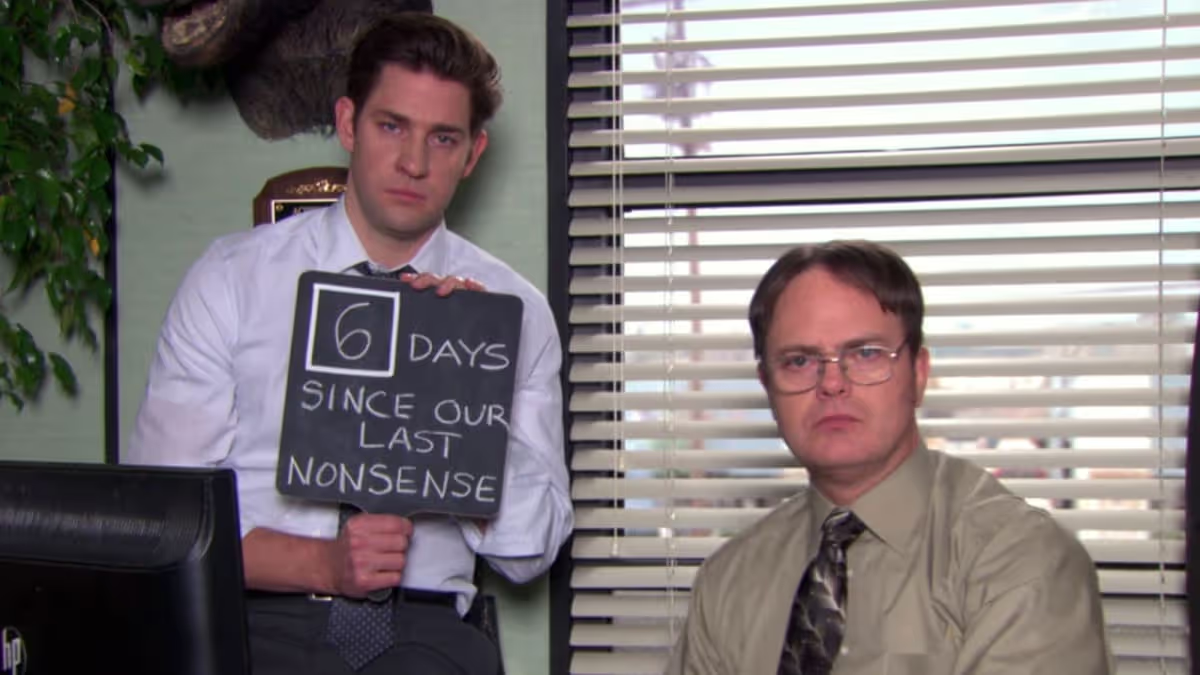
This mocks the routine nature of certain corporate jobs and criticises the way corporate work is organised, involving employees in arriving early and leaving late so that they are not seen as unmotivated or not dedicated to their careers. This time pressure can lead to employee fatigue, as they are unable to maintain focus and productivity within the required time slots: five days out of seven, and eleven months out of twelve.
More broadly, the series offers a bittersweet critique of the existential emptiness that certain meaningless work can generate. In the first episode, as the characters are introduced, Jim Halpert faces the camera and explains his assignments at the Dunder Mifflin paper company in a weary and nonchalant manner. He then starts yawning and laughing at how boring he finds his own talk of work.
Fortunately for the characters, and thanks to Michael Scott’s chaotic management, the workplace tends more to resemble a summer camp.
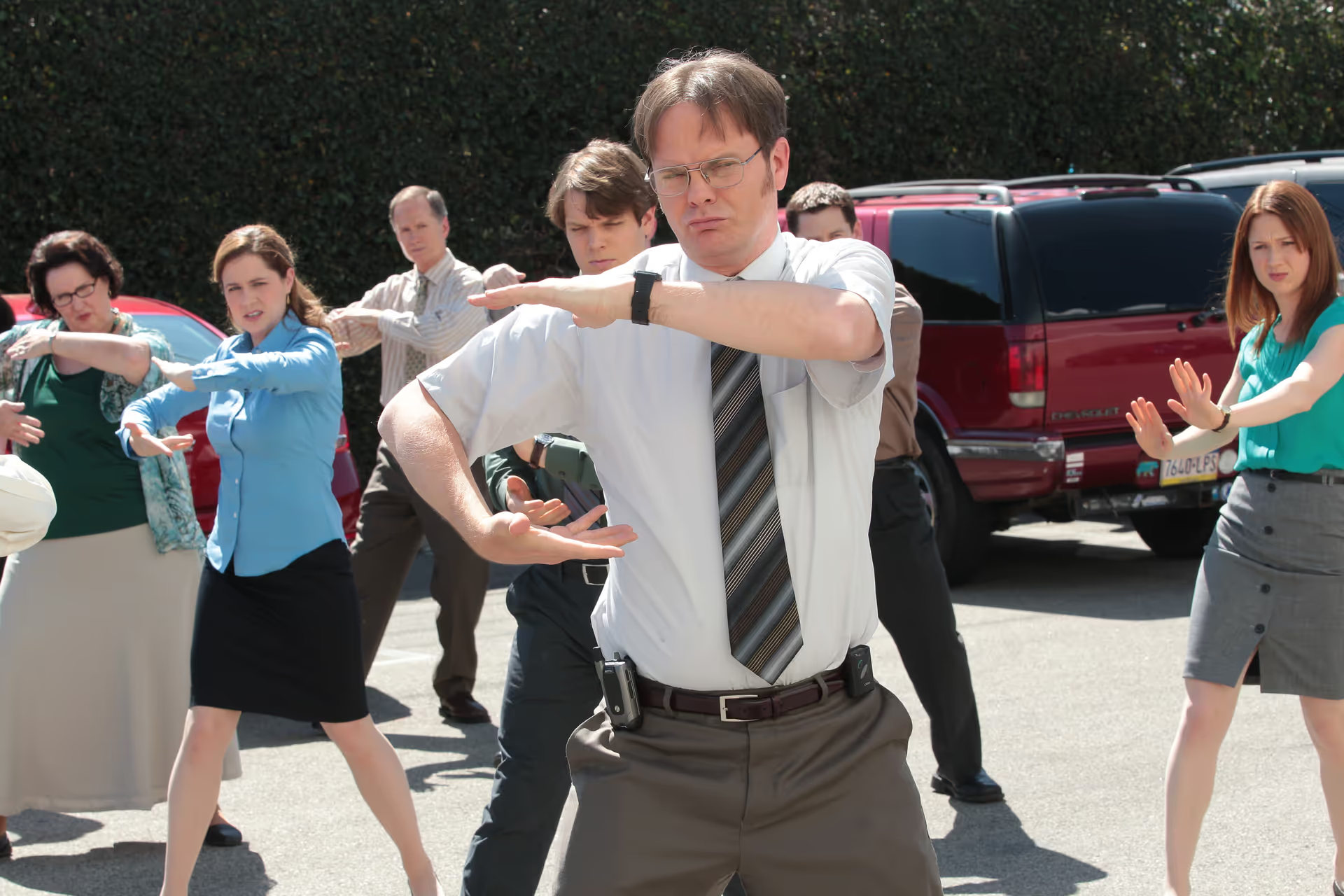
Corporate irony
Michael Scott always finds a way to distract his employees from their work, whether it’s through absurd motivational seminars, clumsy HR policies, empty productivity contests, hollow slogans, artificial team-building exercises, 'salesman of the month' contests, after-work events or marathons in corporate colours. The wonderful thing about this series is that the plot of each episode is completely unrelated to work. In other words, despite almost the entire series taking place in the office, the writers have managed to create a series spanning nine seasons, with around twenty episodes each, focusing on situations with no direct connection to work.
The series satirises the 'ultra-corporate' nature of some companies while promoting well-being, team cohesion and, ultimately, productivity. Ironically, in The Office, this approach has the opposite effect. Michael spends so much time trying to improve working life and reinforce team cohesion that his employees end up doing anything but work. Any excuse is good enough to avoid sitting at their desk behind their computer. If that were the case, the show wouldn’t be nearly as entertaining.

Escape Burnout and Boost Productivity
Discover how Timestripe can help you find meaning in your work routine
Get StartedWork as a place for social life… by default
The employees form a kind of dysfunctional family. Michael Scott is a character with no friends or relationships outside of work. Yet, throughout the series, he talks about his desire to become a father one day. We laugh at his excessive involvement in, and systematic intrusion into, the private lives of the other characters. His employees are his chosen family — his default family, too. As previously mentioned, the series criticises the cult of work and careerism in modern Western society. Work occupies such a large part of the characters' lives that they are forced to forge social bonds in the workplace. This illustrates the extent to which corporate work absorbs the personal and social spheres today. Certain companies are even cultivating this mindset with slogans such as 'We’re like one big family'…
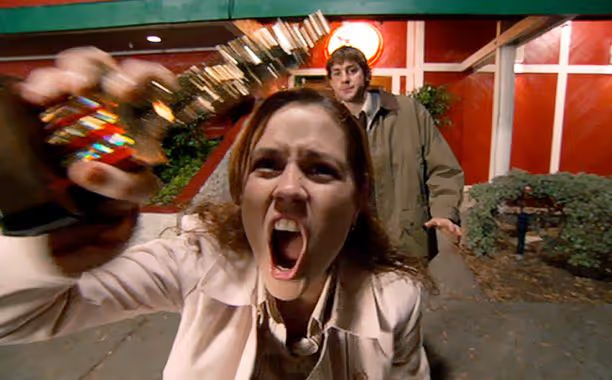
In The Office, this aspect of the working world is turned on its head in a humorous and emotional way. Over the seasons, we see the characters evolve together. Their relationships are turbulent — sometimes happy, sometimes disappointing — but the triumph of the series is that the characters find daily joy and purpose in what is essentially a boring, meaningless job. One of the most touching scenes in the show is Jim and Pam’s wedding, when all their colleagues dance in front of them. Ultimately, it’s a family you really want to be part of.
Why The Office still resonates today?
Even 20 years ago, we were fed up with office productivity culture, and satire about office life was at its peak. Yet people still watch the series and use memes from it to describe situations in their lives on social networks. Perhaps by 2025, we will even miss this lifestyle, with its fast pace and digitisation, and the fact that most communication is online.
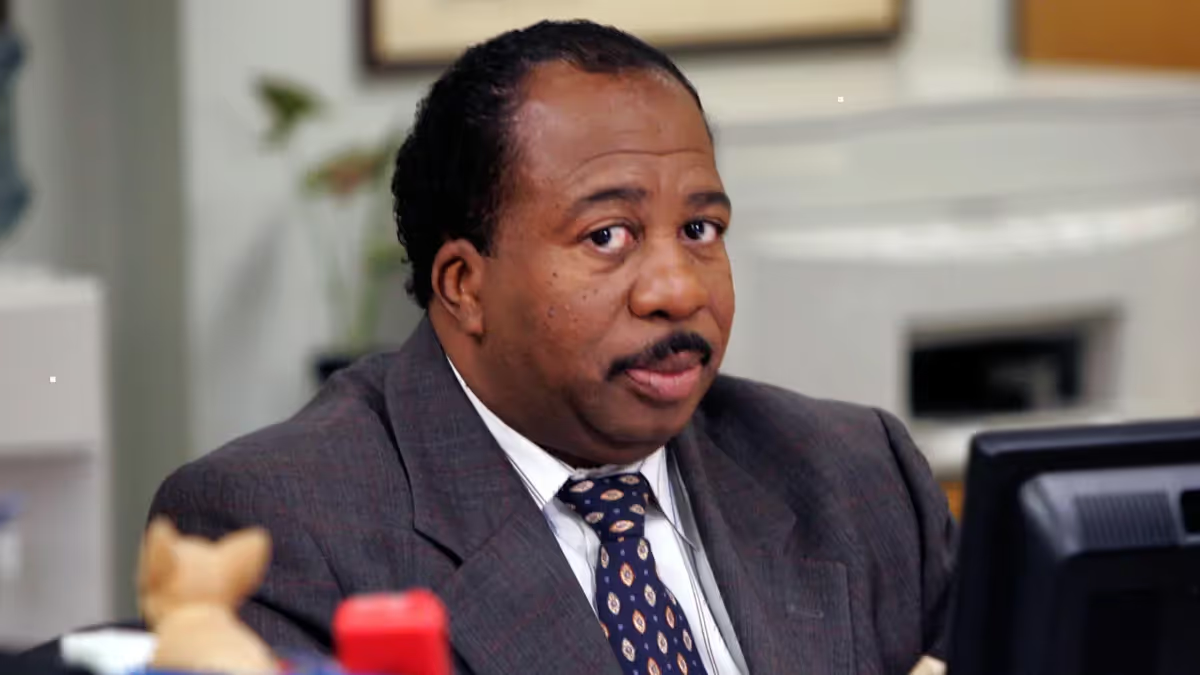
Perhaps it could be nice to have our own quirky office colleagues. They could help us cope.
Read next

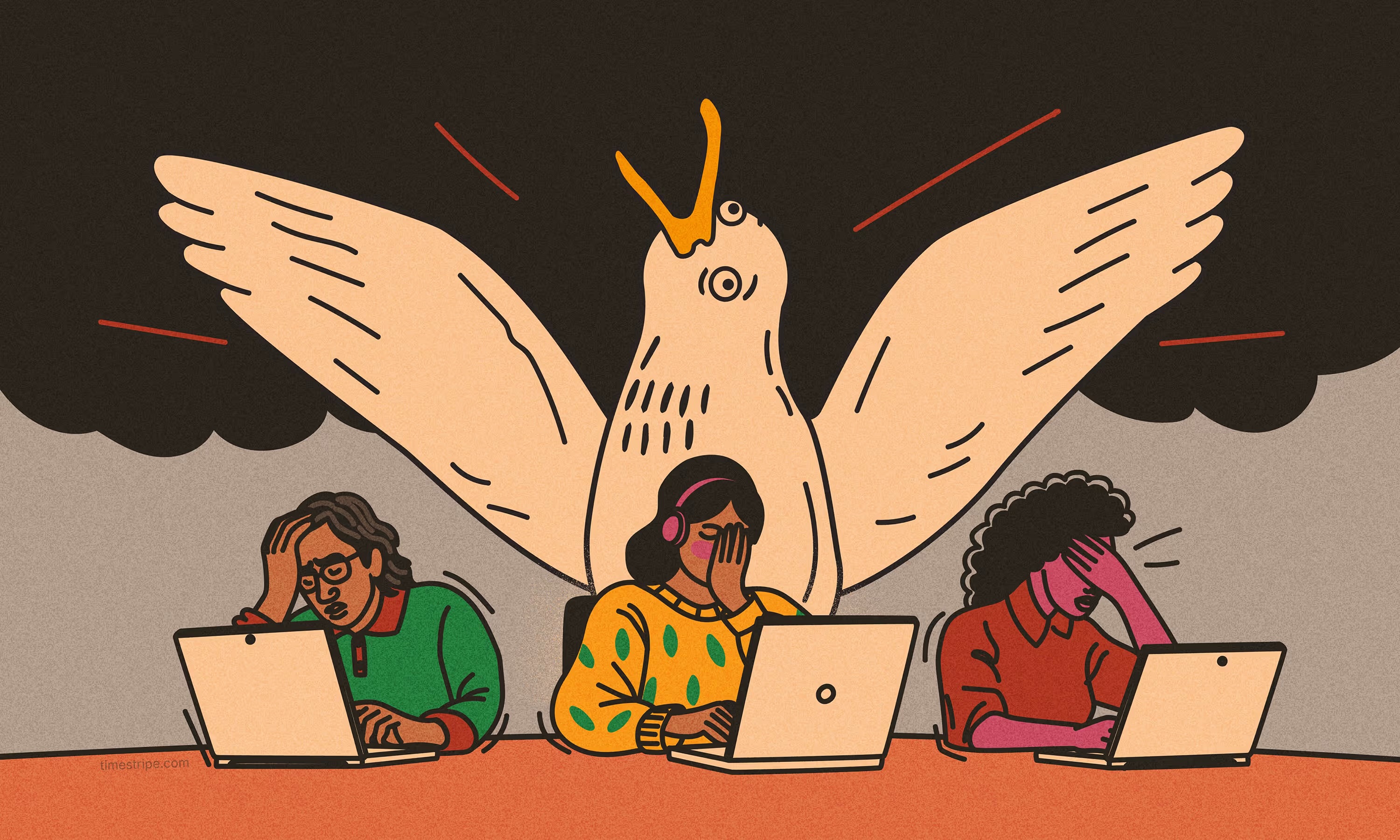 When Managers Take Flight: What is “Seagull Management” and How to Avoid It
When Managers Take Flight: What is “Seagull Management” and How to Avoid It

